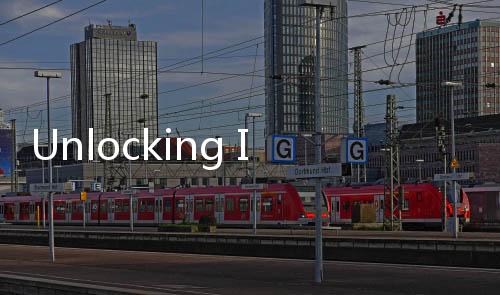Unlocking Indonesia’s Potential in the Industries of the Future
As we move toward 2040, the global economic landscape is being fundamentally reshaped by emerging industries. According to recent studies by McKinsey Global Institute and Visual Capitalist, 18 high-growth sectors—including artificial intelligence, industrial biotechnology, renewable energy, and modular construction—are projected to generate over $48 trillion in output by 2040. This transformation is no longer theoretical—it is already underway.
For Indonesia, this era represents not just a challenge but a generational opportunity. With a large, tech-savvy population, strategic geographic position, and vibrant entrepreneurial energy, Indonesia is uniquely positioned to lead, not follow, in this new global economy.


From Adopters to Innovators: AI and Digital Prowess
Indonesia has excelled as a digital adopter. Our e-commerce and fintech sectors have flourished, creating unicorns and disrupting traditional industries. But the true leap forward lies in becoming creators of technology—especially in fields like artificial intelligence, robotics, and cloud infrastructure.

AI is particularly poised to transform key sectors of the Indonesian economy—from agriculture and logistics to healthcare and public services. To realize this potential, we must launch a coordinated national initiative to accelerate AI research and development, supported by smart policy and sustained private investment. Building digital literacy and reskilling our workforce will be crucial to democratize participation in this transformation.

Biotech, Green Energy, and Smart Industry: Playing to Our Natural Strengths
As the world pivots to sustainability, Indonesia must transition from being a resource extractor to becoming a value-added bioeconomy. Our rich biodiversity gives us a competitive edge in industrial biotechnology, with potential applications ranging from sustainable biomaterials to pharmaceuticals. With the right R&D investments and startup ecosystem support, Indonesia can lead in this space.
In renewable energy, Indonesia is naturally gifted—with abundant solar, geothermal, and hydropower potential. The global shift toward green energy and electric mobility is a unique opportunity for Indonesia to localize electric vehicle (EV) supply chains and battery production, leveraging our critical mineral reserves.
Smart manufacturing and modular construction offer the chance to leapfrog inefficient infrastructure models and create efficient, digitally integrated cities and industries.
VKTR’s EV Production Facility in Magelang: A Milestone Toward Industrial Transformation
A concrete example of Indonesia’s transition toward the industries of the future is the launch of the EV commercial vehicle manufacturing facility by PT VKTR Teknologi Mobilitas Tbk (VKTR) in Magelang, Central Java.
Operated by its subsidiary PT VKTR Sakti Industries (VKTS), this is the first commercial EV assembly plant in Indonesia using a completely knocked-down (CKD) model. With an initial production capacity of 1,500 units annually—scalable to 3,000 units—the facility will produce electric buses and trucks, forming part of a fully integrated EV ecosystem. Crucially, it is committed to gradually increasing domestic content (TKDN) to 80%.
The facility represents a joint investment of IDR 300 billion, with VKTR contributing IDR 200 billion for technology and infrastructure, and partner Karoseri Tri Sakti providing land and building investment worth IDR 100 billion.
Beyond manufacturing, the facility will serve as a hub for technology transfer, R&D, and skills development, in collaboration with leading academic institutions including PENS, UNS, and ITB. It supports Indonesia’s Net Zero Emissions goal by 2060 and positions us as a serious player in the global EV value chain.
A New Investment Narrative: Value Consolidation and Collaboration
To fully seize these opportunities, Indonesia must offer a new investment proposition—one based on value consolidation rather than just location advantage. Beyond tax incentives, we must present investors with integrated value ecosystems: infrastructure, skilled talent, regulatory clarity, and access to dynamic domestic and regional markets.
Public-private partnerships are essential. As Vice Chairman for Technology and Digital Transformation at KADIN, I strongly advocate for the development of innovation districts and digital free zones—spaces where startups, corporates, universities, and policymakers can collaborate, test, and scale high-impact technologies.
We must also treat digital infrastructure as a national asset—from cloud data centers and green tech zones to AI training facilities. These are not only enablers of innovation but also magnets for investment and job creation.
Conclusion: From Catching Up to Leading
Indonesia must not view this era of disruption with apprehension but with ambition. This is our moment to lead. By embracing future-defining industries with strategic clarity, national cohesion, and a commitment to inclusive growth, we can uplift millions, enhance our competitiveness, and secure Indonesia’s role as a force in the global economy of 2040.
Let us act boldly and decisively—because the future is not something we wait for; it is something we build.




